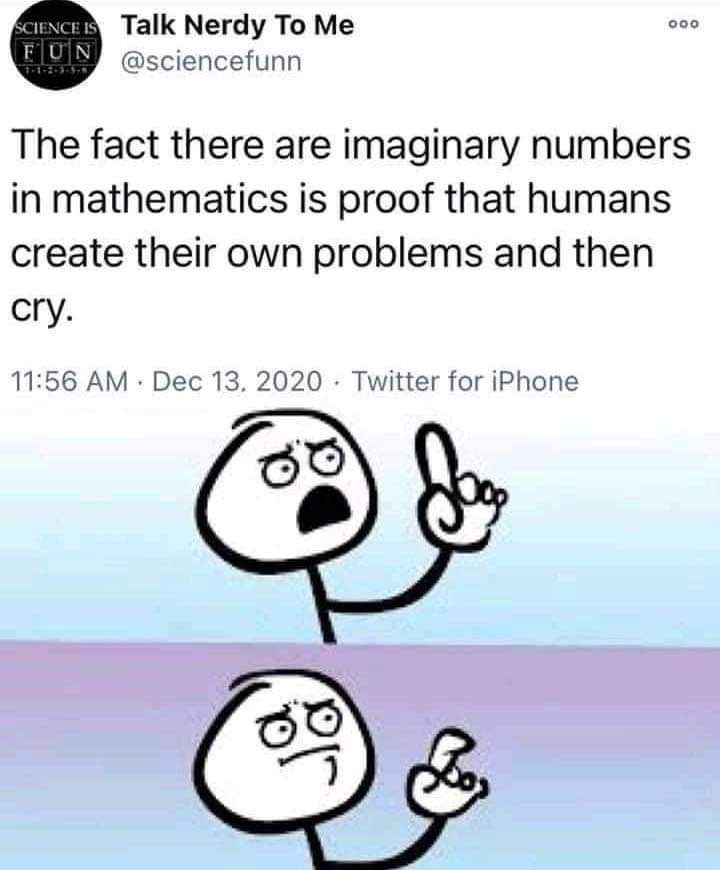this post was submitted on 16 Sep 2024
718 points (93.3% liked)
memes
10338 readers
2270 users here now
Community rules
1. Be civil
No trolling, bigotry or other insulting / annoying behaviour
2. No politics
This is non-politics community. For political memes please go to !politicalmemes@lemmy.world
3. No recent reposts
Check for reposts when posting a meme, you can only repost after 1 month
4. No bots
No bots without the express approval of the mods or the admins
5. No Spam/Ads
No advertisements or spam. This is an instance rule and the only way to live.
Sister communities
- !tenforward@lemmy.world : Star Trek memes, chat and shitposts
- !lemmyshitpost@lemmy.world : Lemmy Shitposts, anything and everything goes.
- !linuxmemes@lemmy.world : Linux themed memes
- !comicstrips@lemmy.world : for those who love comic stories.
founded 1 year ago
MODERATORS
you are viewing a single comment's thread
view the rest of the comments
view the rest of the comments

Serious question because I am math-challenged.
What things are we able to quantify by finding the square root of a negative number aside from square roots of negative numbers?
Electrical engineers use them for calculating AC-circuits. In a DC circuit, you only have to worry about how much volt and amperes are in each part of the circuit. In an AC circuit, you also have to worry about the phase, cause the voltage goes up and down. The phase means where in that up and down you are.
The complex number is interpreted as a point on a 2-dimensional plane; the complex plane. You have the "normal" number as 1 axis, and orthogonal to that the imaginary axis. The angle of the vector to that point gives the phase.
They can be generally used for such "wavy" (ie periodical) processes. But I think this particular field of electrical engineering is the main application.
Interesting, thank you!
I'm glad to hear you say that, cause after sending I worried that I didn't make much sense.
Equations. When we model things with equations, sometimes they don't have a 'solution' at a particular place, unless we use the formal math rules of 'imaginary' numbers like i. Someone else in the comments mentioned electric conductance/resistance in circuits as an example.